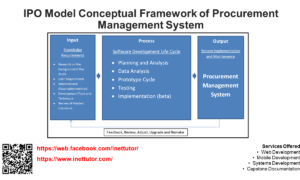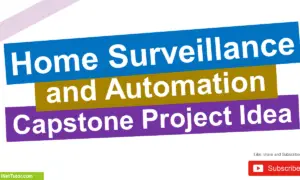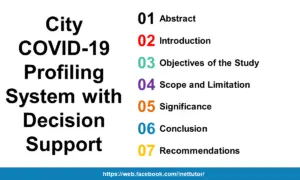IT Solutions for Government Agencies
In today’s digital age, information technology (IT) has become an integral part of government agencies. IT solutions help government agencies to streamline their processes, improve efficiency, and provide better services to citizens. However, implementing IT solutions in government agencies comes with challenges such as funding constraints, resistance to change, and limited technical expertise. In this blog post, we will discuss the importance of IT solutions for government agencies and common areas of IT solutions such as cloud computing, cybersecurity, data management, and mobile and web application development. We will also provide a list of innovative IT project ideas for government agencies. Whether you are a government official looking for ways to improve your agency’s operations or an IT professional interested in working in the government sector, this post will give you valuable insights on IT solutions for government agencies.
Explanation of IT Solutions for Government Agencies
Table of Contents
- Explanation of IT Solutions for Government Agencies
- The importance of IT Solutions for Government Agencies
- Challenges of Implementing IT Solutions in Government Agencies
- Common Areas of IT Solutions for Government Agencies
- Listed below are some innovative government sector-related projects:
- Additional Project Ideas
- Summary
Government agencies face a unique set of challenges in managing data and providing services to citizens. As such, the need for effective and efficient IT solutions has become increasingly crucial. In this section, we will explore the various IT solutions that government agencies can adopt to improve their operations and better serve their constituents.
One of the primary IT solutions that government agencies can utilize is cloud computing. Cloud computing provides a flexible and scalable infrastructure that enables agencies to store, process, and manage data more efficiently. This technology allows for better collaboration between different departments, which can help improve communication and streamline workflows. Additionally, cloud computing provides enhanced security features that can help safeguard sensitive government data.
Another important IT solution for government agencies is data analytics. With the vast amounts of data that government agencies manage, the ability to analyze and extract insights from that data can be a game-changer. Data analytics can help government agencies identify patterns and trends, make more informed decisions, and improve their services. By utilizing data analytics tools, government agencies can better understand the needs of their constituents and tailor their services accordingly.
Finally, mobile technology is another critical IT solution that government agencies can leverage. Mobile devices provide agencies with an efficient and convenient way to communicate with citizens and provide them with services. For instance, agencies can develop mobile applications that allow citizens to access government services and information from their smartphones or tablets. This technology can help improve citizen engagement, enhance the accessibility of government services, and increase citizen satisfaction. These IT solutions can help government agencies better manage their operations, improve their services, and ultimately, better serve their constituents.
The importance of IT Solutions for Government Agencies
IT solutions play a vital role in improving the overall performance and efficiency of government agencies. One of the key benefits of implementing IT solutions is the ability to streamline processes and increase productivity. By automating certain tasks, such as data entry and record-keeping, government agencies can free up staff time to focus on more critical responsibilities. This, in turn, leads to faster and more accurate service delivery to constituents.
Another important benefit of IT solutions in government is improved data security. With the increasing volume of sensitive information being processed by government agencies, it is essential to ensure that this data is protected from unauthorized access and cyber threats. IT solutions such as encryption software, firewalls, and multi-factor authentication can help safeguard sensitive data and prevent breaches.
IT solutions can also facilitate better communication and collaboration between government agencies and their constituents. With the use of digital platforms, such as websites and mobile apps, constituents can access information and services more easily and conveniently. This can lead to improved transparency and accountability, as well as greater citizen engagement in the democratic process.
IT solutions have become increasingly important for government agencies to remain competitive and effective in today’s digital landscape. By embracing these solutions, agencies can improve operational efficiency, enhance data security, and better serve their constituents through improved communication and collaboration.
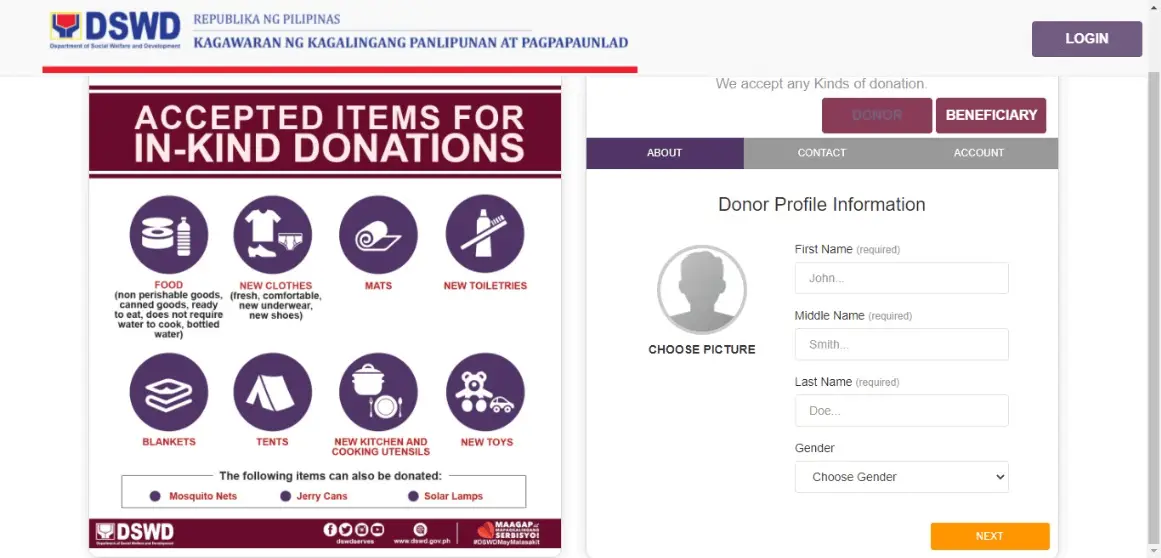
Challenges of Implementing IT Solutions in Government Agencies
Implementing IT solutions in government agencies can significantly improve the efficiency and effectiveness of public services. However, there are several challenges that government agencies face when implementing IT solutions.
- One of the most significant challenges is funding and budget constraints. Government agencies often have limited budgets allocated for IT projects, which can lead to delays in implementation or a compromise in the quality of the final product.
- Resistance to change is another challenge that government agencies face when implementing IT solutions. Employees may be hesitant to adopt new technologies, which can slow down the implementation process and negatively impact the overall success of the project.
- Limited technical expertise and resources can also pose a challenge when implementing IT solutions in government agencies. In many cases, government agencies lack the necessary technical expertise to effectively plan and implement IT projects. Additionally, they may also have limited resources available to invest in hiring or training IT personnel.
- Data security and privacy concerns are also a significant challenge when implementing IT solutions in government agencies. Government agencies are often responsible for handling sensitive information, and any breach of data can lead to serious consequences. As a result, it is crucial to ensure that IT solutions are secure and meet data privacy standards.
Despite these challenges, implementing IT solutions in government agencies can bring significant benefits to the constituents. For example, IT solutions can improve the speed and quality of public services, increase transparency and accountability, and enhance data-driven decision-making. Therefore, it is important for government agencies to identify and address these challenges in order to successfully implement IT solutions that can positively impact their constituents.
Common Areas of IT Solutions for Government Agencies
Government agencies have a wide range of operations that require the use of information technology (IT) solutions to enhance their efficiency and effectiveness. Here are some of the most common areas where government agencies can use IT solutions to improve their operations:
- Cloud Computing: Cloud computing is the delivery of computing services such as storage, servers, databases, software, and analytics over the internet. Government agencies can use cloud computing to store and access data and applications securely, share resources, and reduce the cost of maintaining their IT infrastructure.
- Cybersecurity Solutions: Cybersecurity solutions help government agencies to protect their networks, systems, and data from cyber-attacks and other security threats. This includes firewalls, antivirus software, intrusion detection and prevention systems, and security information and event management systems.
- Data Management Solutions: Government agencies generate and manage large amounts of data that require efficient storage, processing, and analysis. Data management solutions such as data warehousing, data integration, and data analytics can help agencies to make better decisions, improve service delivery, and increase transparency.
- Mobile and Web Application Development: Mobile and web application development is essential for government agencies to deliver services and information to citizens and stakeholders. Government agencies can use mobile and web applications to provide online services, facilitate communication, and improve citizen engagement.
By implementing IT solutions in these areas, government agencies can improve their efficiency, effectiveness, and service delivery. For example, cloud computing can help government agencies to reduce their IT infrastructure costs and improve their collaboration and information sharing. Cybersecurity solutions can help to protect sensitive data and information systems from cyber threats, data management solutions can help to improve decision-making and transparency, and mobile and web application development can help to provide convenient and accessible services to citizens.
- Health Center Information Management System: A software system that helps government-run health centers manage patient information, medical records, and appointment schedules.
- Cedula Mobile: A mobile application that allows citizens to request and renew their government-issued ID cards and certifications.
- Census Monitoring: A system that helps government agencies monitor the population and gather data on demographics and social trends.
- Automated Permitting and Licensing System: A digital platform for individuals and businesses to apply for and manage permits and licenses, with automated approval and renewal processes.
- Geographic Information System (GIS): A system that uses spatial data to analyze and visualize information related to location and geography, helping government agencies make better decisions.
- Government Service Chatbot: A chatbot that provides citizens with assistance and answers to inquiries regarding government services.
- Project Monitoring and Evaluation System: A system that helps government agencies manage and track project progress, and evaluate project outcomes.
- Poverty and Malnutrition Monitoring System: A system that gathers and analyzes data on poverty and malnutrition, helping government agencies design more effective poverty alleviation programs.
- Information System for Bureau of Fire Protection: A software system that helps the Bureau of Fire Protection manage information related to fire incidents, prevention, and response.
- DSWD Donation System: A platform that facilitates donations to the Department of Social Welfare and Development for disaster response and poverty alleviation programs.
- Remote Work Infrastructure – With the increasing trend towards remote work, this project involves creating an IT infrastructure to support government employees working from home or other remote locations. This can include secure access to government networks and data, as well as collaboration tools and communication platforms. By implementing a remote work infrastructure, government agencies can improve productivity, reduce costs related to office space and utilities, and increase employee satisfaction.
- Electronic Voting System: A digital platform that streamlines the voting process, reducing errors and improving efficiency.
- Traffic Management System: A system that helps manage traffic flow in real-time, reducing congestion and improving road safety.
- Disaster Response and Recovery Management System: A system that helps government agencies respond to and recover from natural disasters, providing aid and support to affected communities.
- Senior Citizen Information System: A system that manages data related to senior citizens, including healthcare, welfare, and social services.
- Vaccine Distribution System: A platform that helps manage the distribution and tracking of vaccines, ensuring equitable access and effective administration.
- Open Data Portal: A web portal that allows the public to access and analyze government data, promoting transparency and accountability.
- Paperless Office: A digital document management system that reduces paper usage and streamlines government processes.
- Online Citizen Complaint System: A platform that allows citizens to file and track complaints online, improving government responsiveness and accountability.
- Cybersecurity Training Program: A program that provides government employees with cybersecurity training to prevent cyber attacks and data breaches.
- Public Transportation Mobile App: A mobile app that helps citizens plan and navigate public transportation systems, reducing congestion and improving mobility.
- Barangay Records Management System: A system that helps barangays manage records and information related to their communities.
- City Business Permit and Monitoring System with Decision Support: A digital platform that streamlines the business permit process and provides decision support for city officials.
- BJMP’S Visitor’s Log Monitoring System: A system that monitors and manages visitors to Bureau of Jail Management and Penology facilities, ensuring safety and security.
- Electronic Medical Record System – This project involves implementing an electronic medical record (EMR) system for government-run healthcare facilities. The EMR system can include patient records, medical histories, treatment plans, and other health-related data. By having a centralized system for managing this information, healthcare providers can improve patient care, reduce errors related to manual record-keeping, and streamline administrative processes. The EMR system can also improve communication between healthcare providers and reduce the risk of duplicate tests and procedures.
- Social Media Management System: A system that helps government agencies manage and analyze their social media accounts, improving communication and engagement with citizens.
- Cloud-Based Business Permit Processing: A digital platform that enables businesses to apply for and manage permits and licenses online, reducing processing times and improving efficiency.
- PWD Information System: A system that manages data related to persons with disabilities, providing support and assistance to those in need.
- Evacuation Center Management System: A system that manages and tracks evacuees and resources during disaster situations.
- Data Analytics and Business Intelligence – This project involves developing a system for collecting and analyzing data from various sources within government agencies. By having access to real-time data, government agencies can make informed decisions and improve overall efficiency. The system can also include business intelligence tools, such as data visualization and predictive analytics, to help agencies identify patterns and trends in the data.
- Curfew and Travel Pass Information System: A platform that manages curfews and travel restrictions during times of emergency or crisis.
- Online Tax Filing System – Create an online tax filing system for citizens and businesses to file their taxes and pay online.
- Environmental Monitoring System – Develop a system to monitor and track environmental data such as air quality, water quality, and weather conditions.
- Online Training and Development Program – Develop an online training and development program for government employees to improve their skills and knowledge.
- Child Welfare Information System – Implement a system to track and manage information related to child welfare and foster care services.
- Virtual Courtroom System – Develop a virtual courtroom system to enable remote hearings and reduce the need for in-person court appearances.
- Visitor Management System – Create a system to manage and track visitors to government facilities.
- Housing Information Management with Mapping – This project involves creating a system for managing and mapping housing information for government agencies. This can include information on public housing units, rental properties, and other housing-related data. By having a centralized system for managing this information, government agencies can more easily track and analyze housing trends, identify areas of need, and make data-driven decisions related to housing policies.
- Animal Control Management System – Implement a system to track and manage animal control activities such as adoptions, vaccinations, and enforcement.
- Real-Time Financial Management System – Develop a system to monitor and manage government finances in real-time, with automated reporting and forecasting features.
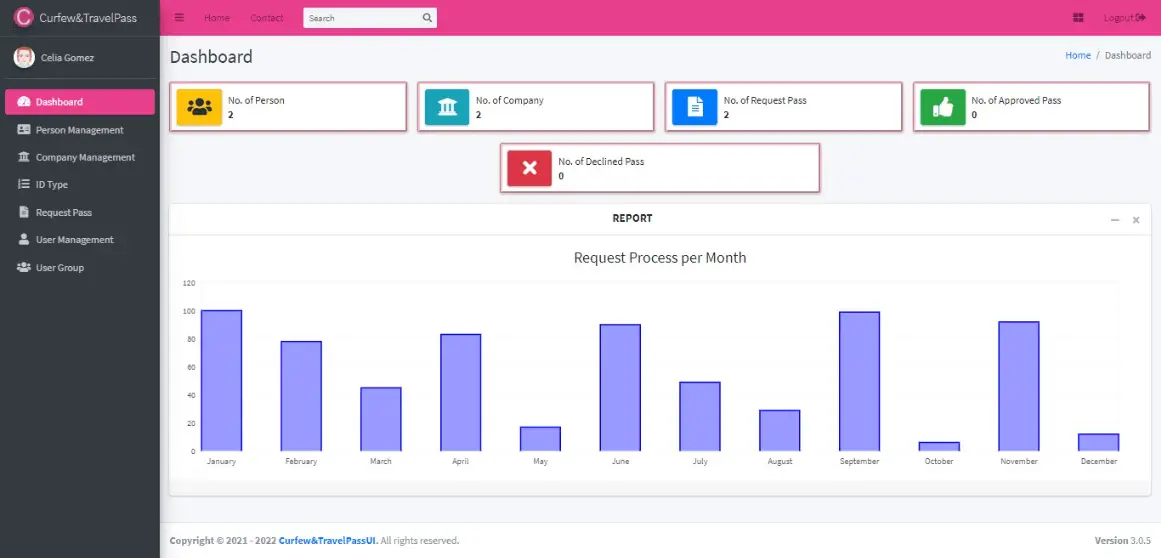
Additional Project Ideas
Cloud Computing:
- Migration of government agency data and systems to a cloud-based infrastructure
- Development of a cloud-based disaster recovery system for government agencies
- Creation of a cloud-based document management system for government agencies
Cybersecurity Solutions:
- Implementation of a government-wide cybersecurity training program
- Development of a multi-factor authentication system for government employees
- Creation of a cyber threat intelligence sharing platform for government agencies
Data Management Solutions:
- Creation of a centralized government-wide data catalog and management system
- Implementation of a data governance framework for government agencies
- Development of a data analytics and visualization platform for government agencies
Mobile and Web Application Development:
- Creation of a mobile app for citizens to report potholes and road maintenance issues to local government agencies
- Development of a web-based platform for citizens to apply for and track the status of government benefits and services
- Implementation of a mobile app for government inspectors to conduct inspections and submit reports in real-time
Summary
The implementation of IT solutions in government agencies offers numerous benefits to both the government and its constituents, including improved efficiency, increased transparency, and better delivery of services. However, there are also several challenges that need to be addressed, including budget constraints, resistance to change, and limited technical expertise and resources. Common areas of IT solutions for government agencies include cloud computing, cybersecurity, data management, and mobile and web application development. Some innovative government-related IT project ideas include a government service chatbot, electronic voting system, disaster response and recovery management system, and remote work infrastructure. By leveraging these IT solutions and project ideas, government agencies can improve their operations and service delivery, ultimately benefiting their constituents and the community as a whole.
Readers are also interested in:
- 100 Best Java Project Ideas
- 150 Thesis and Capstone Project for IT and IS
- Thesis and Capstone Project Title Compilation for Information Technology
You may visit our Facebook page for more information, inquiries, and comments. Please subscribe also to our YouTube Channel to receive free capstone projects resources and computer programming tutorials.
Hire our team to do the project.
